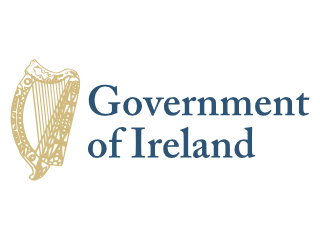Celtic tribes arrived on the island between 600 and 150 B.C. Invasions by Norsemen that began in the late 8th century were finally ended when King Brian BORU defeated the Danes in 1014. Norman invasions began in the 12th century and set off more than seven centuries of Anglo-Irish struggle marked by fierce rebellions and harsh repressions. The Irish famine of the mid-19th century saw the population of the island drop by one third through starvation and emigration. For more than a century after that the population of the island continued to fall only to begin growing again in the 1960s. Over the last 50 years, Ireland's high birthrate has made it demographically one of the youngest populations in the EU. The modern Irish state traces its origins to the failed 1916 Easter Monday Uprising that touched off several years of guerrilla warfare resulting in independence from the UK in 1921 for 26 southern counties; six northern (Ulster) counties remained part of the UK. Unresolved issues in Northern Ireland erupted into years of violence known as the "Troubles" that began in the 1960s. The Government of Ireland was part of a process along with the UK and US Governments that helped broker what is known as The Good Friday Agreement in Northern Ireland in 1998. This initiated a new phase of cooperation between the Irish and British Governments. Ireland was neutral in World War II and continues its policy of military neutrality. Ireland joined the European Community in 1973 and the euro-zone currency union in 1999. The economic boom years of the Celtic Tiger (1995-2007) saw rapid economic growth, which came to an abrupt end in 2008 with the meltdown of the Irish banking system. Today the economy is recovering, fueled by large and growing foreign direct investment, especially from US multi-nationals.
Ireland is a parliamentary republic.
Source: CIA World Factbook
Members:
Resources
Displaying 71 - 75 of 137Planning and Development (Amendment) Regulations 2013 (S.I. No. 219 of 2013).
These Regulations amend the Planning and Development Regulations 2001 in provisions concerning exempted development. A planning exemption is being introduced in respect of remedial works carried out in compliance with an advisory notice from a water services authority requiring remediation in cases where septic tanks or other onsite waste water treatment systems have been assessed by the water services authority as causing or likely to cause a risk to human health or the environment.
European Union (Household Food Waste and Bio-waste) (Amendment) Regulations 2013 (S.I. No. 251 of 2013).
These Regulations amend the European Union (Household Food Waste and Bio-waste) Regulations 2013, which promote the segregation and recovery of household food waste. They clarify what constitutes an offence under the Regulations, dealing with powers of authorised persons and deleting Regulation 7 (b) which concerns the use of macerators. They also insert the definition of "local authority".
Amends: European Union (Household Food Waste and Bio-waste) Regulations 2013 (S.I. No. 71 of 2013). (2013-02-21)
European Communities (Environmental Impact Assessment) (Agriculture) Regulations 2011 (S.I. No. 456 of 2011).
These Regulations provide compliance with the Environmental Impact Assessment (EIA) Directive 85/337/EEC as amended insofar as it applies to certain categories of on-farm activities. They make provision for a statutory screening and consent system for these activities and also for environmental impact assessment for such development if it is likely to have a significant effect on the environment.
European Communities (Environmental Impact Assessment) (Agriculture) (Amendment) Regulations 2013 (S.I. No. 142 of 2013).
These Regulations amend the European Communities (Environmental Impact Assessment) (Agriculture) Regulations 2011 by, among other things: inserting a definition of "environmental impact assessment" and a new definition of "EIS" and Minister; and defining the duties of the Minister in respect of applications for authorization of development and environmental impact assessment. They also substitute Schedule 3 (specifying information to be contained in an Environmental Impact Statement) for the Schedule attached to these Regulations.
Arts, Heritage and the Gaeltacht (Delegation of Ministerial Functions) Order 2013 (S.I. No. 94 of 2013).
This Order provides for the delegation of powers (other than the power to prosecute an offence) and duties of Minister for the Environment, Heritage and Gaeltacht conferred on him or her by or under various Acts and Regulations listed in the Schedule to this Order to the Minister of State at the Department of the Environment, Community and Gaeltacht. Legislation includes (parts of) the Planning and Development Act 2000 and the Planning and Development Regulations 2001 to 2012.


